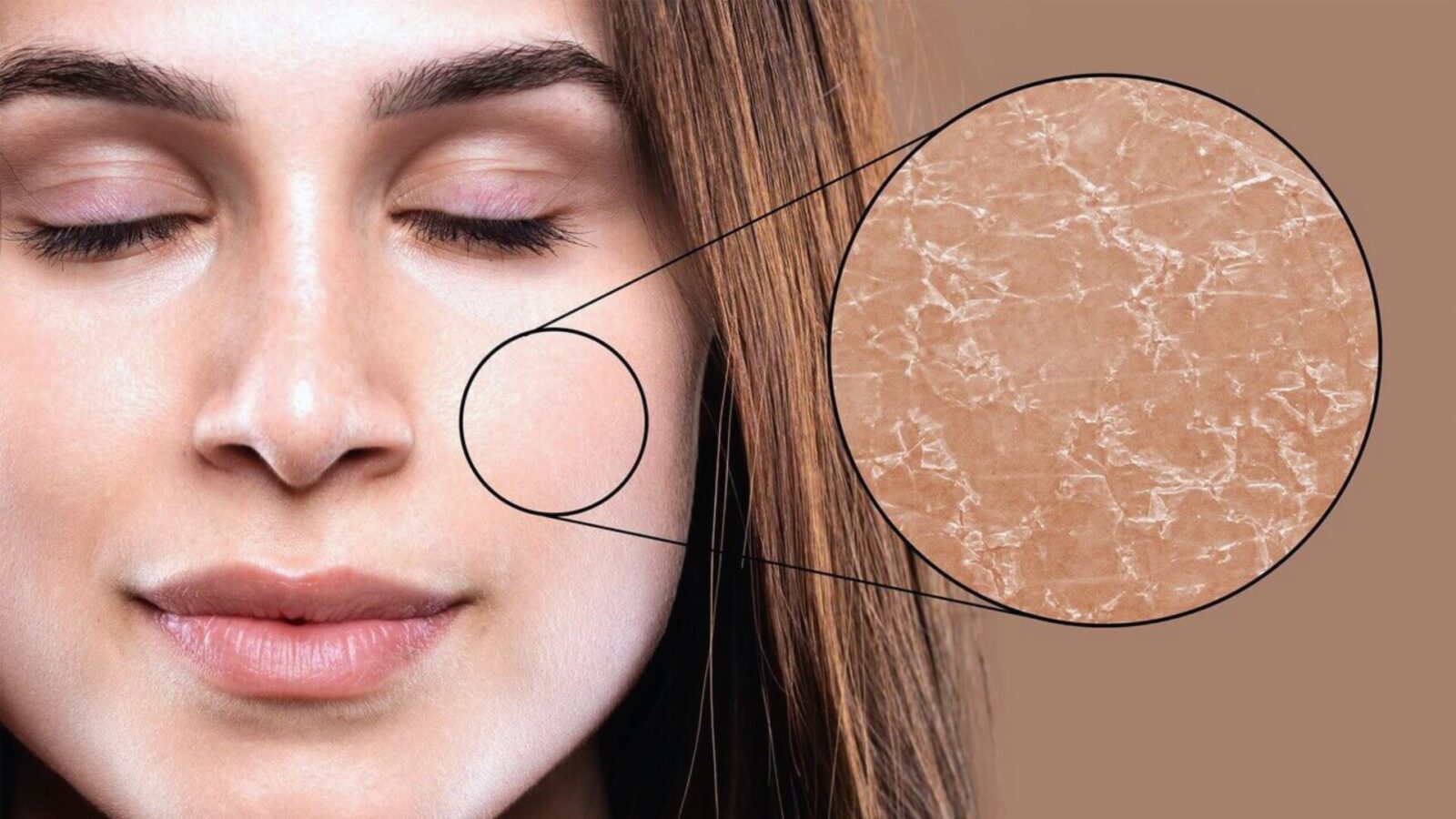As winter rolls around, many of us experience the unwelcome effects of dry, flaky, and irritated skin. Cold air, low humidity, and indoor heating strip moisture from the skin, making it challenging to maintain a soft, hydrated complexion. Dealing with winter dryness isn’t just about slathering on lotion—it involves adopting consistent skincare habits and using products that nourish and protect.
In this blog, we’ll dive into the top 10 tips to combat dry skin during winter, helping you maintain healthy, glowing skin all season long.
1. Moisturize Immediately After Showering
The first and perhaps the most important habit is applying a moisturizer right after you step out of the shower. When your skin is damp, it absorbs moisture better, and sealing it with a cream or lotion helps prevent water loss.
- Why: Hot water can strip your skin’s natural oils, leaving it dry and irritated. Locking in moisture within 2-3 minutes of showering ensures hydration stays intact.
- What to use: Opt for thick, fragrance-free creams or body butters with ingredients like ceramides, hyaluronic acid, and glycerin for maximum hydration.
Pro Tip: Pat your skin dry gently with a towel instead of rubbing to prevent further irritation.
2. Use a Humidifier Indoors
Central heating systems make indoor air warm but also dry, which worsens the skin’s moisture levels. A humidifier increases the moisture in the air, benefiting both your skin and respiratory system.
- Why: Dry air pulls moisture from your skin, causing it to feel tight and uncomfortable.
- How to use: Place a humidifier in your bedroom or the room where you spend the most time. Aim to maintain an indoor humidity level of 40-50% for optimal comfort.
Pro Tip: Clean the humidifier regularly to prevent the buildup of mold and bacteria.
3. Avoid Long, Hot Showers
Although a hot shower feels amazing on cold winter mornings, it can wreak havoc on your skin by stripping away essential oils.
- Why: Hot water disrupts the skin’s natural barrier, leading to increased dryness and sensitivity.
- What to do instead: Use lukewarm water and limit showers to 5-10 minutes.
Pro Tip: Switch to moisturizing body washes containing oils or shea butter for added nourishment.

4. Opt for Gentle Cleansers
Using harsh soaps or cleansers can further dry out your skin by stripping it of its natural oils. In winter, it’s best to switch to mild, hydrating cleansers.
- Why: Soaps containing alcohols or sulfates can worsen dryness and irritate your skin.
- What to use: Look for pH-balanced, fragrance-free cleansers with soothing ingredients like oatmeal, aloe vera, or hyaluronic acid.
Pro Tip: Use creamy face cleansers instead of foaming ones to preserve the skin’s moisture barrier.
5. Layer Your Skincare Products Correctly
Layering your skincare products properly can help you trap moisture and prevent dryness. Each product has a different function, and applying them in the right order ensures maximum benefit.
- How to layer:
- Start with a hydrating serum (like hyaluronic acid) to attract moisture.
- Follow with a thicker moisturizer or cream to lock in hydration.
- Finish with an occlusive (like petroleum jelly or facial oils) if your skin is extremely dry.
Pro Tip: Pay special attention to the drier parts of your face, like the cheeks, around the nose, and forehead, while layering products.
6. Don’t Skip Sunscreen
Even though it’s winter, the sun’s UV rays can still damage your skin, causing dryness and premature aging.
- Why: UV radiation can dehydrate your skin and break down collagen, leading to wrinkles and dullness.
- What to use: Choose a broad-spectrum sunscreen with SPF 30 or higher, even on cloudy days.
Pro Tip: Use sunscreens with added moisturizers to keep your skin hydrated and protected throughout the day.
7. Exfoliate Gently, But Not Too Often
Exfoliating helps slough off dead skin cells, allowing moisturizers to penetrate deeper. However, over-exfoliating can strip your skin of essential oils, causing irritation.
- How often: Stick to exfoliating once or twice a week using a gentle exfoliator.
- What to use: Choose scrubs with fine granules or chemical exfoliants like lactic acid or polyhydroxy acids, which are gentler on the skin.
Pro Tip: Follow up with a rich moisturizer after exfoliating to soothe the skin.

8. Keep Hydrating from the Inside Out
Staying hydrated during winter is just as important as during summer, even if you don’t feel as thirsty.
- Why: Dehydration can make your skin appear dull and flaky, and water helps maintain overall skin health.
- How to stay hydrated: Drink plenty of water, and add herbal teas or water-rich foods like fruits and vegetables to your diet.
Pro Tip: Omega-3 supplements or foods rich in healthy fats (like avocados and nuts) can help nourish the skin from within.
9. Wear Weather-Appropriate Clothing
Your clothing choices can also affect how your skin feels during winter. Harsh fabrics and cold winds can irritate dry skin, causing redness and itchiness.
- What to wear: Opt for soft, breathable fabrics like cotton or silk, especially for clothing that touches your skin directly. Layer with scarves, gloves, and hats to protect your face and hands from the cold.
- What to avoid: Avoid wearing rough wool or synthetic fabrics without a protective layer underneath, as they can irritate sensitive skin.
Pro Tip: Use moisturizing gloves or socks overnight if your hands and feet feel excessively dry.
10. Be Mindful of Your Diet
What you eat has a direct impact on your skin’s health. In winter, a diet rich in antioxidants, healthy fats, and vitamins can help combat dryness.
- What to include:
- Omega-3 fatty acids: Found in fish, chia seeds, and walnuts, these nourish dry skin.
- Vitamin E: Known for its skin-repairing properties, available in nuts, seeds, and leafy greens.
- Vitamin C: Helps with collagen production, improving skin’s moisture barrier.
- Hydrating foods: Cucumber, watermelon, and oranges keep your body and skin hydrated.
Pro Tip: Reduce your caffeine and alcohol intake, as both can dehydrate your body and worsen dry skin.
Bonus Tips to Combat Winter Dryness
- Hand Cream: Carry a moisturizing hand cream with you, as hands tend to get dry faster due to frequent washing.
- Lip Balm: Don’t forget to use a hydrating lip balm to prevent chapped lips.
- Body Oil: For an extra dose of hydration, apply body oil before your moisturizer to lock in moisture.
Conclusion
Dealing with dry skin in winter requires a combination of external care, lifestyle changes, and consistent skincare habits. By following these 10 tips, you can protect your skin from the harsh winter elements and maintain a healthy, glowing complexion throughout the season. Remember to moisturize regularly, protect your skin from the sun, and keep both your body and environment well-hydrated.
Winter may be tough on your skin, but with the right approach, you can keep it soft, supple, and comfortable all season long!






















Leave a Reply